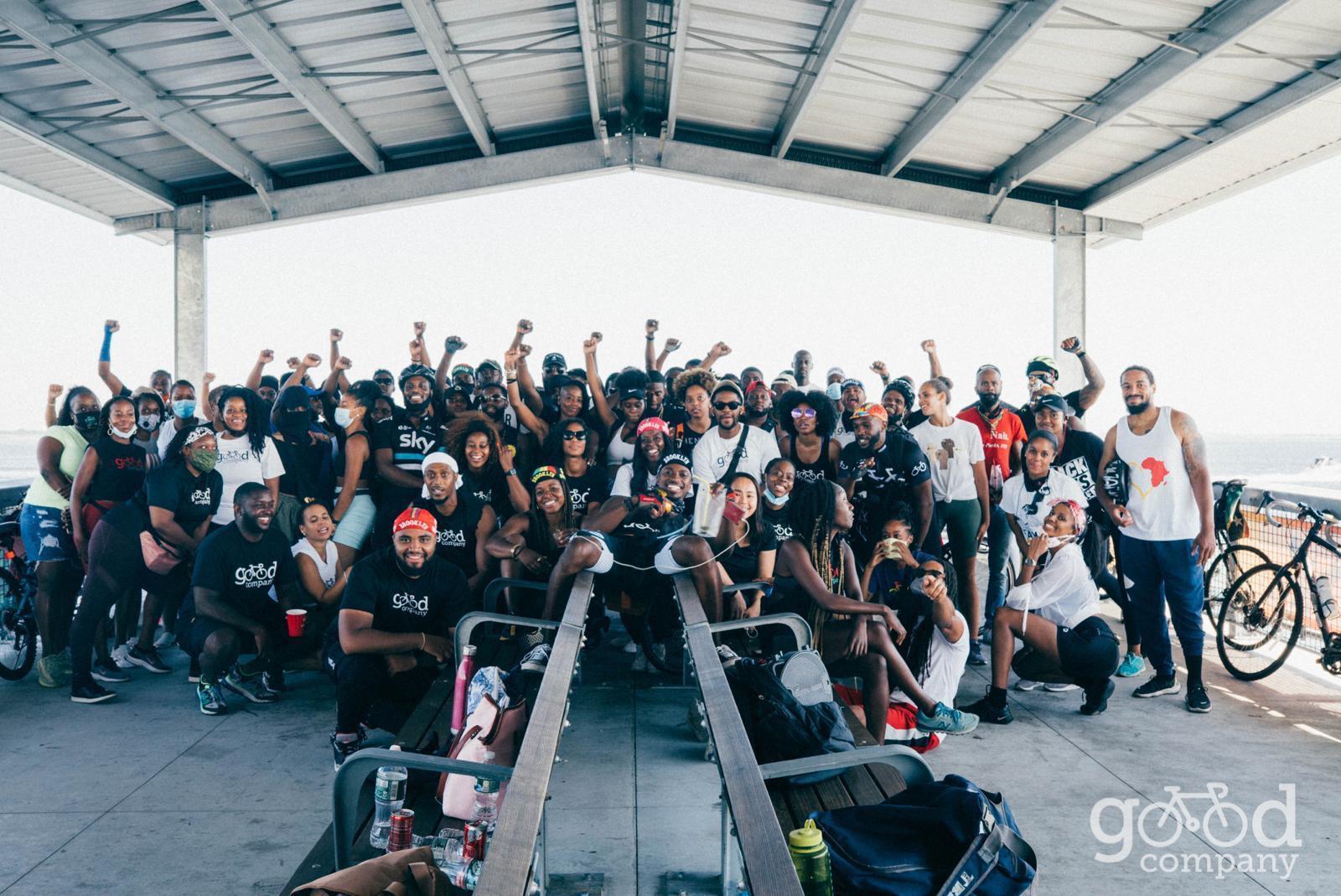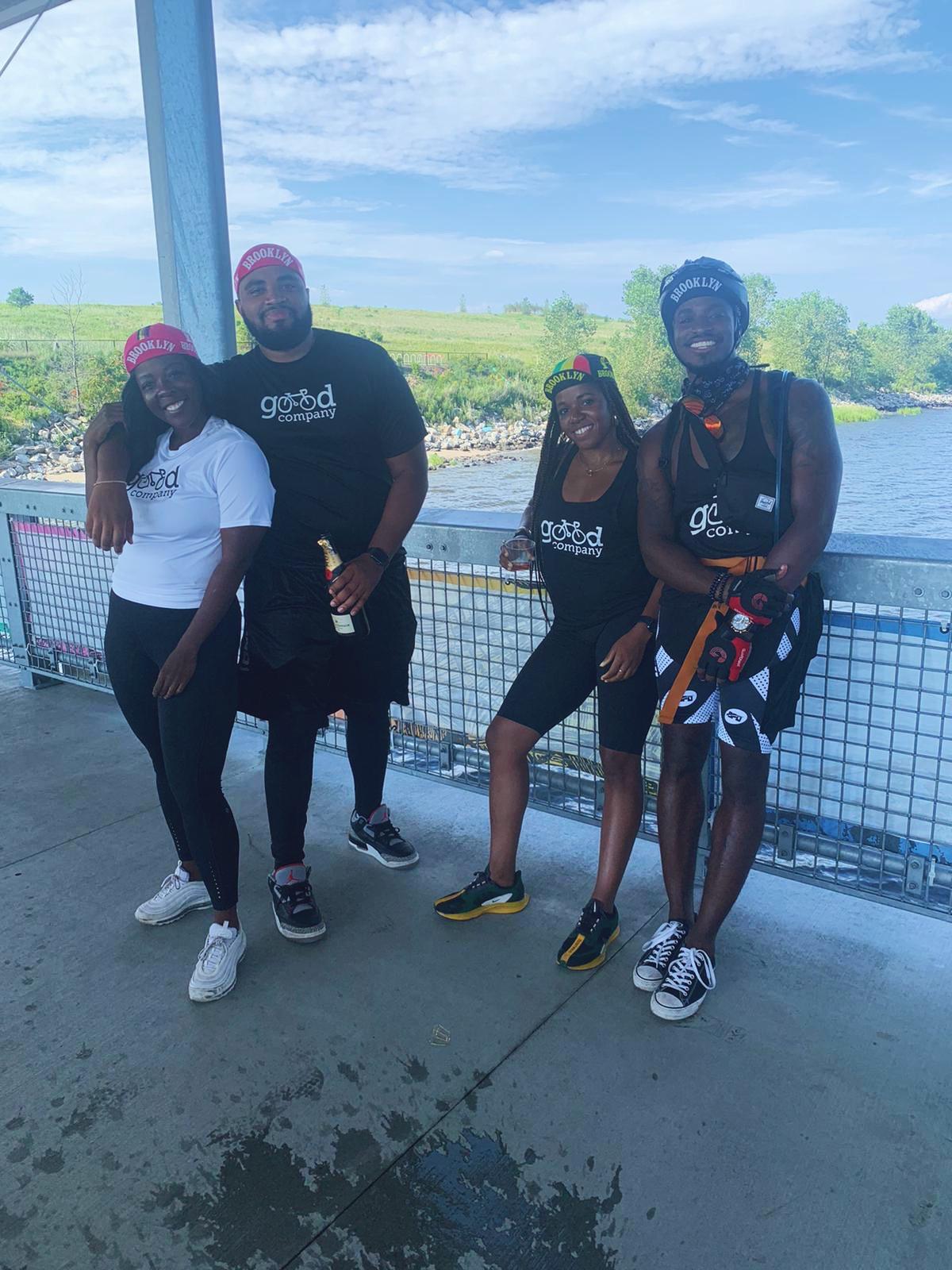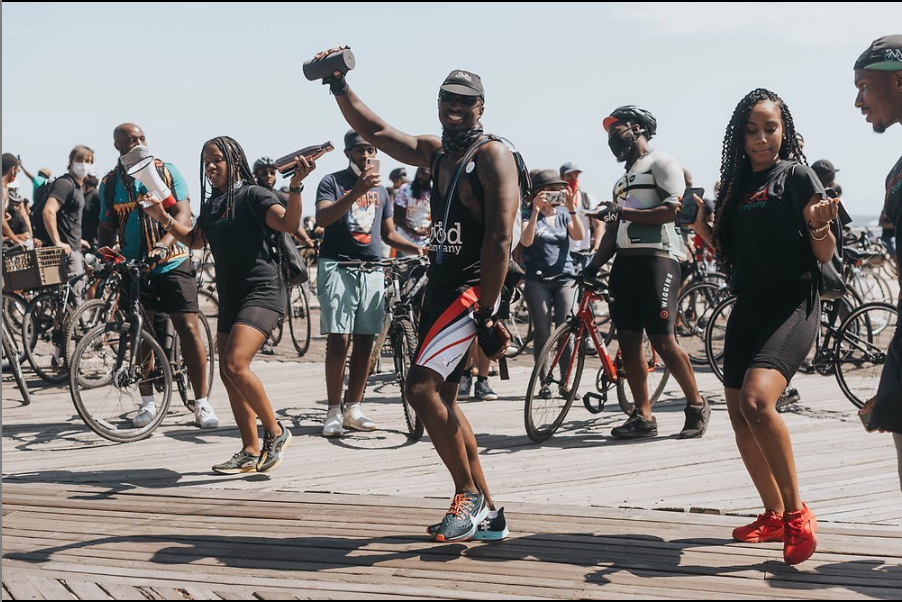
On the heels of a crushing pandemic exasperated by social unrest, a cultural shift with Black joy at its center is changing the way our communities relate, connect and heal. Brooklyn based cycling group, Good Company Bike Club, was born in this awakening, proving revolution can be found in simple ways–even on two wheels.
Founder Andrew Bennett launched Good Co. Bike Club in May, reimagining what liberation looks like for NYC’s Black and brown neighborhoods through cycling.
“Good Co Bike Club created itself,” Bennett told ESSENCE.

“I’ve been biking all my life, but with a core group of friends. One day during social distancing I decided to put it on my Instagram, ‘Meet me at 12 noon tomorrow if you want to ride.’ 17 people showed up. We had a blast.”
When Bennett decided to do another meet-up the following week, the list of attendees almost doubled. That’s when the Brownsville native decided to make an Instagram page.
“During the brainstorm stage, I kept thinking what’s the point of this? Is it cycling? Is it about working out? Is it about the people who show up? The community? Engaging with amazing people? All of the above! It’s about Good Company.”
Bennett formed The Good Company Bike Club brand alongside four executive board members: Shari Brown, Chief Marketing & Comms Officer, Milly Louis, Chief Operations & Policy Officer and Marv Marcel, Chief Creative Officer. Through rides spotlighting local Black owned businesses, exploring famed city sites and promoting wellness, Good Co. Bike Club quickly exploded into a millennial phenomenon.

The club’s highest attended ride yet took place on Juneteenth, a holiday celebrating the emancipation of enslaved people in the United States. Good Co. worked in partnership with Brooklyn Borough President Eric Adams to coordinate a safe and fun route for 1500 cyclists.
“I pitched the Juneteenth ride to [Bennett], and we then built from there in 10 days,” Chief Marketing and Comms officer Shari Brown, who went to highschool with Bennett, told ESSENCE.
“Bike riding provides a sense of freedom for the rider and served as a perfect juxtaposition with the meaning of Juneteenth with it being the African-American day of Freedom. It was only right we hone into that opportunity,” she explained.
While the club hasn’t had an official protest ride yet, Bennett noticed that the very act of Black folks enjoying themselves is its own form of revolt.
“With Black lives constantly at risk, every day we are alive and mobilize, and celebrate life is in fact a protest. Biking is also therapeutic. So when people need to unplug, from work, protest, COVID, they want to be around good company (pun intended), they seek out Good Co Bike Club.”
Two weeks ago, Good Co rode through Brownsville and the historic neighborhood of Weeksville, Brooklyn—a community that served as a haven for free Black people before the Civil War ended. The crew also passed through the new Shirley Chisholm State Park, named for the first Black woman elected to the United States Congress.
Bennett hopes leading a ride through the community he was raised in will give Black cyclers much needed representation.
“I used to get clowned for biking,” Bennett told ESSENCE.
“People thought I either didn’t know how to drive a car, or couldn’t afford a car. Little did they know…it’s fun! It’s sustainable! Therapeutic! And one of the most freeing experiences,” he explained.
Adding, “I am working to debunk this by being a living example that it is cool to bike: WE BIKE TOO!”
As Good Co. looks ahead, they plan to execute more large-scale experiential events and create a loyalty program for members.
“The near future of the bike club is to roll out our membership and partnership plan,” Brown told ESSENCE.
“We have teamed up with a few Black-Owned establishments in New York City who have become our partners and have also built an amazing relationship with the Brooklyn Borough President’s Office to help foster our wish for safe cycling within Black communities in the city.”
At a time where so much was lost not only in our communities, but also globally, Good Co shines as an example of what resilience and innovation looks like in the face of hardship.
“The pandemic allowed for everyone to reset and get back or start doing things that they loved,” Brown said.
“Everyone is yearning for a sense of community and social interaction, so we found a way to create that while still adhering to the social distance parameters during this time.”